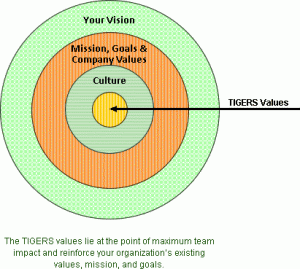 No matter how much work gets done in a day, there is always more work to do tomorrow. This is important for team members and leaders to remember because at times, team members may feel that they do not have time to take a vacation. But nothing could be further from the truth. Vacations and time off are essential for proper work-life balance. Without time off, team members become less productive, less satisfied with their positions and more likely to burn out.
No matter how much work gets done in a day, there is always more work to do tomorrow. This is important for team members and leaders to remember because at times, team members may feel that they do not have time to take a vacation. But nothing could be further from the truth. Vacations and time off are essential for proper work-life balance. Without time off, team members become less productive, less satisfied with their positions and more likely to burn out.
Before heading out on a vacation, team members may not realize how badly they actually needed some time off. But knowing the importance of vacations and understanding when to check out is important for success and elevates leadership success, too. Here’s how:
The importance of vacations for team members
Set the example. Team members may be hesitant to take time off if they do not see their leaders doing the same. Team leaders need to recognize that they set the tone for the rest of the team, so if they never take any time off, the team may believe that this is expected behavior. But effective leaders understand the importance of taking time off for themselves, and for encouraging their team members to do the same.
Get some motivation. Not only does time off rejuvenate team members, but the anticipation of time off can also motivate team members to work harder. When team members have something to look forward to, they will likely receive a boost of energy to complete important tasks before they head out. No one wants to be worried about work when they are taking some much-needed time off, so leaders may find that their team members are also more productive before they leave.
Catch up on sleep. Taking some time away allows everyone to recharge their batteries and earn back some much-needed sleep. Sleep is an often overlooked aspect for success, but it is during sleep that many people have their best ideas. By stepping away from work, team members have the opportunity to rest both their body and mind. By taking this time off, team members will actually be able to perform better in their jobs once they return. Recharged batteries can lead to better ideas, more compassion for coworkers and customers and better performance ratings.
 Gain creativit. By doing the same thing every day, team members may not be able to think outside of the box, which can lead to creative ruts. By taking some time off, team members will increase their reaction times, gain fresh perspectives and come up with creative solutions to problems. And not only do vacations help with work, but they are an important indicator of happiness. Employees who regularly take vacations are generally happier than those who rarely vacation, regardless of how much they earn. Overall, vacations lead to better health.
Gain creativit. By doing the same thing every day, team members may not be able to think outside of the box, which can lead to creative ruts. By taking some time off, team members will increase their reaction times, gain fresh perspectives and come up with creative solutions to problems. And not only do vacations help with work, but they are an important indicator of happiness. Employees who regularly take vacations are generally happier than those who rarely vacation, regardless of how much they earn. Overall, vacations lead to better health.
Give team members a chance to succeed. When leaders take vacations, they may be tempted to stay in touch, but not only does this hurt the leader, it hurts the team. Leaders who remain in touch are missing the point of their time off, and they may not receive the full benefits from their vacation. In-touch leaders also send the message that they do not fully trust their team members, and the team members are missing out on valuable learning opportunities. When the boss is away and out-of-touch, team members are forced to handle situations as they arise, which is an important problem solving skill.
Consider unlimited vacation. It may seem counter intuitive, but organizations with high amounts of trust can benefit from offering unlimited vacation days to its employees. In high trust organizations, leaders ask their team members to take time off as they need it, and they trust that their team members will not take advantage of the system. This type of system encourages leaders to track productivity, rather than hours worked, which benefits from vacation time. This type of system may not work for every organization, but it may prove effective for workplaces with high trust.
While vacations may seem like a luxury, they are critical for all team members in all levels of operation. Time off allows team members to recharge, gain motivation, sleep and gain perspective and insight. Regular vacations also lead to better work-life balance and happier employees. When leaders take time off, it also allows team members to solve their own problems and grow as a team, which is good for the whole organization.
The following articles also support vacations and work-life balance and are a good added resource:
- 5 Reasons Why Your Team Needs You to Take a Vacation
- 5 Reasons to Schedule That Summer Vacation
- Dear Boss: Your Team Wants You to Go on Vacation
- The Secret to Using Your Vacation to Develop Your Team
- How to Make Unlimited Vacation Time Work at Your Company
Copyright TIGERS Success Series, Inc. by Dianne Crampton
 About TIGERS Success Series, Inc
About TIGERS Success Series, Inc
TIGERS Success Series, Inc. is a proprietary team development model based on six principles required for high levels of cooperation among employees and collaboration between departments. The six principles are trust, interdependence, genuineness, empathy, risk and success. These principles are anchored by behaviors that measurably improve team behavior and support existing corporate values.
TIGERS is a Bend, Oregon Team Development Consultant that also licenses and trains HR Executives in TIGERS Team development and Facilitation methods. As a result, HRD leaders are able to build high levels of cooperation to compliment growth and workforce development strategies in measurable ways.
TIGERS is research based and validated with over 30 years of experience building and improving teams and collaborative work culture to drive improved business revenue. This is the type of work culture employees enjoy returning to after a couple of days off. Call 541-385-7465 to inquire about our corporate retreats, licensing and consulting services.